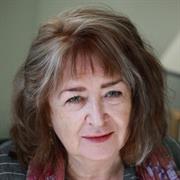
Emeritus Professor Linda Williams
Emeritus Professor
Details
-
Department: School of Art
-
Campus: City Campus Australia
-
linda.williams@rmit.edu.au
About
Professor Williams currently leads a research project based in the Centre for Urban Research in the School of Global and Urban Studies, and the AEGIS research group in the School of Art.
Williams is a cultural historian in the interdisciplinary field of environmental humanities with a focus on histories of human-animal relations, particularly histories of the longue durée and their relation to the current issue of mass species extinction. She has a particular research interest in philosophies of nature and histories and theories of emotions along with a sustained interest in the long 17th century.
Along with many invited keynotes, she has curated several major international exhibitions, is a regular peer-assessor and doctoral examiner. She was an invited fellow on Ocean Ecologies and Imaginaries at the Humanities Research Institute, UCLA at Irvine, and is currently a research associate in Multidisciplinary Environmental Humanities at the University of Cologne in Germany.
She currently leads an ARC Linkage Project: Extinction Imaginaries: Mapping Affective Visual Cultures in Australasia with NGO Partners: Saffron Aid & Greenpeace, and a team with Professor Paul James (WSU); Professor Marco Amati (RMIT); Professor Donna Houston (Macquarie), and Dr Rosie Ibbotson (University of Canterbury, NZ).
Industry experience:
- Research Affiliate; Multidisciplinary Environmental Humanities , University of Cologne.
- Global Associate, Circles of Sustainability, Institute for Culture and Society, Western Sydney University.
- Member Society for the History of Emotions
- Associate of NZCHAS -New Zealand Centre for Human-Animal Studies, University of Canterbury.
- Membership and peer-review of several editorial boards for peer-reviewed journals.
- ARC Peer reviewer.
- Invited Fellowship: Ocean Ecologies and Imaginaries University of California Humanities Research Institute, UCLA at Irvine, Los Angeles.
- (2015 and 2016) Associate Investigator at the ARC Centre of Excellence for the History of Emotions.
- (2015 and 2016) President of ASLEC-ANZ – The Association for the Study of Literature, Culture and Environment Australia and New Zealand
Williams is a cultural historian in the interdisciplinary field of environmental humanities with a focus on histories of human-animal relations, particularly histories of the longue durée and their relation to the current issue of mass species extinction. She has a particular research interest in philosophies of nature and histories and theories of emotions along with a sustained interest in the long 17th century.
Along with many invited keynotes, she has curated several major international exhibitions, is a regular peer-assessor and doctoral examiner. She was an invited fellow on Ocean Ecologies and Imaginaries at the Humanities Research Institute, UCLA at Irvine, and is currently a research associate in Multidisciplinary Environmental Humanities at the University of Cologne in Germany.
She currently leads an ARC Linkage Project: Extinction Imaginaries: Mapping Affective Visual Cultures in Australasia with NGO Partners: Saffron Aid & Greenpeace, and a team with Professor Paul James (WSU); Professor Marco Amati (RMIT); Professor Donna Houston (Macquarie), and Dr Rosie Ibbotson (University of Canterbury, NZ).
Industry experience:
- Research Affiliate; Multidisciplinary Environmental Humanities , University of Cologne.
- Global Associate, Circles of Sustainability, Institute for Culture and Society, Western Sydney University.
- Member Society for the History of Emotions
- Associate of NZCHAS -New Zealand Centre for Human-Animal Studies, University of Canterbury.
- Membership and peer-review of several editorial boards for peer-reviewed journals.
- ARC Peer reviewer.
- Invited Fellowship: Ocean Ecologies and Imaginaries University of California Humanities Research Institute, UCLA at Irvine, Los Angeles.
- (2015 and 2016) Associate Investigator at the ARC Centre of Excellence for the History of Emotions.
- (2015 and 2016) President of ASLEC-ANZ – The Association for the Study of Literature, Culture and Environment Australia and New Zealand
Supervisor projects
- Theres no going back: chaos and destruction as compositional strategies in performance and video
- 4 Jan 2022
- The Smallest Measure: signifiers of atmospheres in transformation
- 18 Jun 2020
- Being Weird: Collaboration, Contamination, and Worlding with Nonhumans
- 15 Mar 2019
- Fluid to Arid: Exploring the Notions of Life and Loss Through the Lens of the Lut Desert Geography
- 21 Aug 2018
- Snowman Killer: Art, Spatial Relations & the Mobilities Turn
- 18 Jun 2018
- Forge, Fire, Quench: Transposing the Transformative Processes of Traditional Blacksmithing into Contemporary Sculptural Practices
- 16 Feb 2018
- Mnemonic Mountain
- 2 Jan 2018
- Ocean Observatory: A Proposition for a Marine Dwelling
- 1 Mar 2017
- Ecologies of dark, light, and time: a material poetics of human-animal encounters in the city.
- 27 Mar 2015
- Sculpture and the Contested Ground of Public and Private Space
- 5 Aug 2014
- The Art of Biophilia. Fabricating Affective Connections between Human and Nonhuman through Figurative Art
- 3 Jan 2014
- Princes Park and the Persian Garden: Re-imagining Urban Parklands in Australia and Iran Through Online and In Situ Art Practice
- 1 Mar 2013
Teaching interests
Research Only
Research interests
History and Philosophy of Human-Animal relations, Multispecies Ethnography, Cultural History & Theory, Extinction Studies, Philosophies of nature, the arts and environmental history & theory


